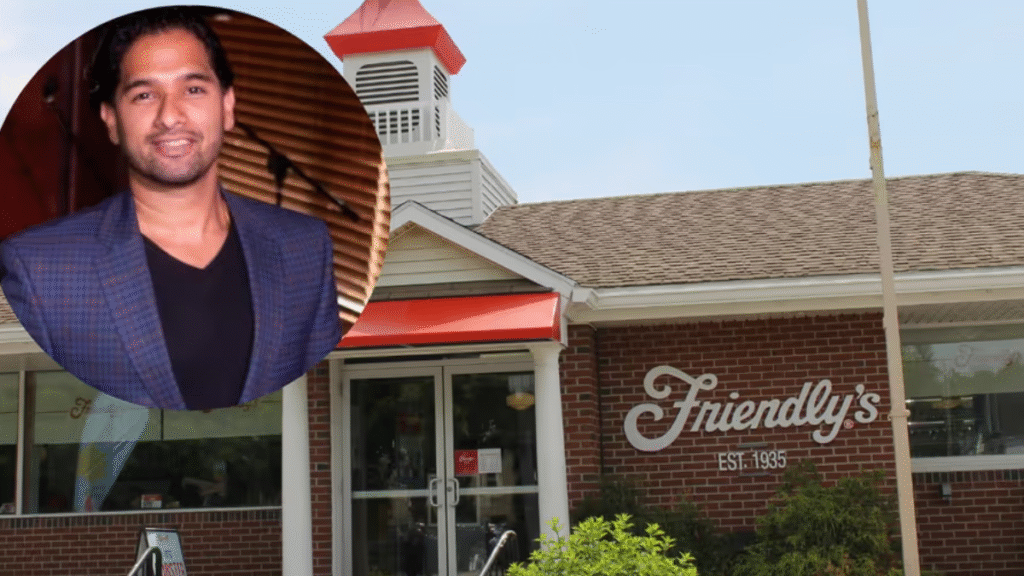News
“They stood in People’s Square and vanished” — 16 Years Later, Where Are the Missing Uyghur Youth of Ürümqi?
Justice remains elusive for the victims of the 2009 Ürümqi massacre as families still wait for answers and the world looks away.

On July 5, 2009, hundreds of Uyghur youth gathered peacefully in People’s Square, Ürümqi, to demand justice after the killing of fellow Uyghur factory workers in southern China. What happened next was not justice—but a massacre.
The Chinese state responded with force, and what began as a peaceful protest ended in chaos, bloodshed, and silence. Sixteen years later, families are still asking the same haunting question: Where are they?
“We stand in solidarity with Uyghurs who continue to wait for justice, including the youth who stood in People’s Square in Ürümqi that day, and never came home,” reads a chilling post by @JusticeForAllCanada.
The protests—and the crackdown—were the beginning of something far darker. That day in Ürümqi altered the fate of millions of Uyghurs. What followed was a decade of repression, marked by mass surveillance, forced disappearances, and the systematic targeting of Uyghur identity.
Today, Xinjiang is known less for its geography and more for its Orwellian reality. Experts report the region is under high-tech surveillance that tracks facial expressions, location, online behavior—even daily prayers. The victims of 2009, whose images now circulate online, were the first in a long line of casualties in a silent war.
Another stark message reads:
“Families never saw their loved ones again. At the same time, armed mobs of Han men attacked Uyghur civilians in the streets—without the government stopping them.”
Photos from that day—now being shared widely—show faces of young Uyghur men, many likely killed or disappeared. Activists say these are not just names. These are sons, brothers, students, fathers—vanished in plain sight.
“This massacre altered the trajectory of Uyghur life,” another post states. “It marked the beginning of a decade of repression.”
Despite international outcry, including reports from the United Nations, governments remain cautious in calling out China’s actions. But for the Uyghur diaspora, this is not politics. It’s personal.
As we mark the 16th anniversary of the Ürümqi massacre, justice remains distant. The protests have stopped, but the surveillance continues. The screams have faded, but the families have not forgotten.
Will the world ever listen?
News
From Waiter to Owner: Indian-Origin Entrepreneur Amol Kohli Acquires Entire Friendly’s Restaurant Chain
Amol Kohli’s Inspiring Journey from Working as a Waiter at Friendly’s to Owning the Restaurant Chain

In a truly inspiring story of determination and hard work, Amol Kohli, a 37-year-old Indian-origin entrepreneur, has gone from working as a waiter at a Friendly’s restaurant in Philadelphia to owning the entire restaurant chain. His journey, spanning two decades, is a testament to the possibilities in the restaurant industry, where perseverance and a willingness to learn can lead to extraordinary success.
Kohli, who moved to the US in search of better opportunities, began his career at Friendly’s in 2003 as a high school sophomore. At the time, he was earning just $5 an hour, juggling multiple roles, including cooking, dishwashing, bussing tables, and even serving as an ice cream scooper. As he told CNBC Make It, his goal was simple: to make some extra pocket money. However, what began as a temporary job soon became a stepping stone to something much greater.

Fast forward to July 22, 2025, Kohli’s investment group, Legacy Brands International, acquired Friendly’s, along with Brix Holdings, its parent company, and six other restaurant chains for an undisclosed amount. “This is one of the few (industries) in the entire world that you can literally start from that level and work your way up to a CEO or executive,” Kohli said, reflecting on his incredible rise within the company.
From Waiter to Regional Manager and Franchisor
Even while pursuing a degree in finance and marketing at Drexel University, Kohli remained connected to Friendly’s. Every summer, he returned to the restaurant, working to learn the inner workings of the business, from payroll and insurance to food costs. “I started supporting a couple of franchisees and just started learning what happens after the money makes its way into the register,” Kohli recalled. He credits this practical experience as pivotal in shaping his business acumen.
After graduating in 2011, Kohli chose a regional manager role at Friendly’s over a more traditional finance career. Over the years, he expanded his role, eventually taking over a closing franchise location using savings, credit, and business partners. This was the beginning of his franchising career, which quickly gained momentum. Kohli went on to franchise 31 Friendly’s locations before making the bold move to buy the entire brand.
Today, Kohli’s company owns multiple restaurant brands, including Clean Juice, Orange Leaf, Red Mango, Smoothie Factory + Kitchen, Souper Salad, and Humble Donut Co., with more than 250 restaurant outlets across the US.

Overcoming Challenges and Modernising Friendly’s
Kohli’s acquisition of Friendly’s comes at a time when the brand is facing significant challenges. Once an 800-location chain, Friendly’s has struggled in recent years, with sales plummeting during the Covid-19 pandemic. The company even filed for bankruptcy in 2020 before being acquired by Brix Holdings in 2021 for under $2 million.
Despite these setbacks, Kohli is optimistic about the future. He founded Legacy Brands International in May 2025, with the goal of acquiring Brix Holdings. The creation of this investment group, Kohli believes, was the result of “a combination of a lot of stars aligning,” adding that his long history with Friendly’s made him the “ideal candidate for ownership.”
Now, as the new owner, Kohli is focused on revitalising Friendly’s by modernising the brand and reframing food service jobs as long-term careers. He hopes to attract new franchisees and offer growth opportunities within the company. “Some of the people on my executive team now were dishwashers and cooks,” Kohli proudly notes, citing his own rise through the ranks as a powerful example of what’s possible in the industry.
Kohli’s Vision for the Future
Kohli’s vision for Friendly’s extends beyond just turning a profit—he wants to create an environment where employees are viewed as integral to the success of the business. By offering them the opportunity to grow, Kohli believes he can change the narrative around food service jobs, which are often seen as temporary work.
As Kohli continues to expand Legacy Brands International, his story serves as an inspiration to young entrepreneurs, particularly those from immigrant backgrounds, demonstrating that with hard work, perseverance, and a willingness to learn, it’s possible to achieve the American Dream.
News
South Carolina judge’s home set ablaze after Trump administration criticism investigators suspect “explosion” amid death threats
Circuit Court Judge Diane Goodstein, who recently faced backlash from the Trump administration over an election data ruling, is recovering after her Edisto Beach home was engulfed in flames — leaving three family members hospitalized.

A horrifying scene unfolded in Edisto Beach, South Carolina, on Saturday morning after the home of Circuit Court Judge Diane Goodstein was set ablaze under what investigators are calling “suspicious circumstances.”
Authorities confirmed that the fire began around 11:30 a.m. ET, injuring three members of the Goodstein family — including her husband, former Democratic state senator Arnold Goodstein, and their son. The occupants had to be rescued by kayak, according to the St. Paul’s Fire District, which responded to the scene.
Judge Diane Goodstein, 69, was not at home during the fire. Sources told FITSNews that she had received multiple death threats in the weeks prior to the blaze. The South Carolina State Law Enforcement Division (SLED) is leading the investigation and has not yet determined whether the fire was accidental or arson.

Explosion suspected
Chief Justice John Kittredge confirmed that preliminary reports suggest the fire may have been triggered by an explosion.
“At this time, we do not know whether the fire was accidental or arson,” Kittredge said. “Until that determination is made, local law enforcement has been ordered to provide extra patrols and security around judges’ residences.”
The incident comes just weeks after Goodstein faced public criticism from the Trump administration for blocking the South Carolina Election Commission from handing over voter registration data to the Department of Justice (DOJ).
Clash with the Trump administration
Last month, Goodstein issued a temporary injunction preventing the release of the state’s voter files — including names, addresses, and Social Security numbers of over three million registered voters — to federal authorities. The DOJ had requested the information as part of President Donald Trump’s March executive order aimed at identifying non-citizens on state voter rolls.
While non-citizens are already prohibited from voting in federal and state elections, critics said the order represented an attempt to federalize state-controlled election systems and suppress marginalized voters.

Goodstein’s ruling was quickly overturned by the South Carolina Supreme Court, but the damage had already been done. Harmeet Dhillon, the Assistant Attorney General for Civil Rights, publicly rebuked the judge, accusing her of “obstructing election integrity.”
Following that, Goodstein began receiving death threats, according to FITSNews, raising concerns about escalating political violence against members of the judiciary.
Pattern of political violence
If investigators confirm that the fire was intentionally set, it would mark another alarming instance in a string of politically motivated attacks across the United States.
In recent months, multiple judges and elected officials have been targeted after rulings unfavorable to the Trump administration:
- Conservative activist Charlie Kirk was murdered last month in what officials described as a politically motivated attack.
- In June, Minnesota House Speaker Melissa Hortman and her husband were killed in their home.
- In April, Pennsylvania Governor Josh Shapiro’s residence was the target of an arson attack.
The Trump White House has faced criticism for its increasingly hostile rhetoric toward judges who rule against its policies. President Donald Trump has repeatedly referred to jurists as “radical left lunatics” and “agitators,” while senior aide Stephen Miller recently accused an Oregon federal judge of “legal insurrection.”
A judiciary under fire
Experts warn that such rhetoric has emboldened extremist threats. In August, Judge Jack McConnell of Rhode Island revealed that his court had received more than 400 threatening voicemails, many referencing Trump’s statements. Judges have even been subjected to “pizza doxxing” — anonymous food deliveries meant to signal that their home addresses have been discovered.
Former federal judge Nancy Gertner, now a professor at Harvard Law School, told The Guardian that inflammatory political language is putting lives at risk.

“There are people inflamed by the incendiary comments of our president and members of Congress about judges,” Gertner said. “Public officials have legitimized attacks on judges with whom they disagree.”
Calls for accountability
In May, more than 150 current and former judges signed an open letter to Attorney General Pam Bondi and FBI Director Kash Patel, urging a federal investigation into the growing number of threats.
“Threats against judges are threats against constitutional government,” wrote Judge Richard Sullivan, a Trump appointee to the U.S. Court of Appeals. “Everyone should be taking this seriously.”
The Department of Justice has yet to comment on the Edisto Beach fire, though a White House spokesperson told NPR that “attacks on public officials have no place in our society.”
Meanwhile, the Goodstein family remains hospitalized as authorities continue to investigate what appears to be one of the most serious acts of political violence against a member of the judiciary this year.
“This is not just an attack on a person,” said one South Carolina legal official. “It’s an attack on the rule of law itself.”
News
DNA evidence finally identifies Robert Eugene Brashers in Austin yogurt shop murders of four teens after 33 years
A breakthrough in forensic testing has linked serial predator Robert Eugene Brashers, who died by suicide in 1999, to the infamous 1991 Austin yogurt shop killings.

More than three decades after one of the most chilling crimes in Texas history, investigators have identified the man responsible for the 1991 Austin yogurt shop murders. On Friday, police confirmed that Robert Eugene Brashers has been definitively linked through DNA evidence to the brutal killing of four teenage girls inside an “I Can’t Believe It’s Yogurt” store.

The breakthrough brings long-awaited answers in a case that has haunted Austin for 33 years.
Who was Robert Eugene Brashers?
Brashers, who died by suicide in 1999 during a police standoff at a Missouri motel, was already suspected of being a violent predator. At the time of his death, he had been hiding with his wife, daughter, and two stepdaughters, all of whom he released before fatally shooting himself.
Subsequent DNA testing connected Brashers to a string of other violent crimes, including multiple rapes and murders in Missouri and South Carolina, and a rape in Tennessee. Authorities have long believed he was a serial offender who evaded justice until his death.

The yogurt shop murders
On December 6, 1991, four teenage girls were killed in what became one of the most infamous crimes in Texas. Victims Amy Ayers, 13; Eliza Thomas, 17; and sisters Jennifer Harbison, 17, and Sarah Harbison, 15, were bound, gagged, and shot execution-style inside the yogurt shop where Thomas and Jennifer worked. The store was then set on fire in an apparent attempt to destroy evidence.
The brutality of the crime shocked Austin and became known nationwide as the “Yogurt Shop Murders.”
Wrongful convictions and overturned cases
In the years that followed, investigators charged Robert Springsteen and Michael Scott, who were teenagers at the time of the crime. Both were convicted in 2001 and 2002, with Springsteen sentenced to death and Scott given life in prison.

But both convictions were later overturned on appeal after courts ruled their confessions had been coerced and, crucially, because no DNA evidence ever tied them to the murders. Both men were released, and the case remained unsolved for years.
Friday’s DNA findings linking Brashers may now close that painful chapter, clearing the names of those wrongfully accused.
Case remains open
Despite the identification of Brashers, the Austin Police Department says the yogurt shop murders investigation is still considered open. Detectives are working to determine whether Brashers acted alone or if others were involved.
READ MORE : Caleb Landry Jones teams up with Peter Sarsgaard and Andrea Riseborough for chilling Don DeLillo film Zero K…
“Our team never gave up working this case,” Austin police said in a statement, adding that they will hold a press conference on Monday to share more details about the DNA breakthrough.
Renewed attention
The case has recently regained national attention following the release of HBO’s docuseries “The Yogurt Shop Murders”, which revisits the tragedy, the botched investigation, and the community’s decades-long wait for justice.
For the families of Amy, Eliza, Jennifer, and Sarah, the new DNA evidence may finally provide long-awaited clarity — though the painful scars of 1991 remain.
-

 Entertainment1 week ago
Entertainment1 week agoDolly Parton delays Las Vegas concerts by nine months citing health challenges but promises unforgettable return
-

 Politics1 week ago
Politics1 week agoBarack Obama blasts Trump over Tylenol autism claim calling it ‘violence against truth’ but that’s not all he said…
-

 Sports5 days ago
Sports5 days agoShohei Ohtani finally pitches in MLB playoffs after 2,746 days… will this be the moment that defines Dodgers vs Phillies?
-

 Entertainment1 week ago
Entertainment1 week agoZoey Deutch engaged to comedian Jimmy Tatro after 4 years of dating with romantic beach proposal
-

 Technology News1 week ago
Technology News1 week agoBitchat downloads skyrocket in Madagascar as protests erupt over water and power cuts… Jack Dorsey’s app becomes a lifeline
-

 Entertainment7 days ago
Entertainment7 days agoSurvivor Season 49 episode 2 shocker Kele tribe loses again and fans stunned by who went home
-

 Sports1 week ago
Sports1 week agoTottenham’s Champions League wake-up call… why Spurs must stop looking like a Europa League side
-

 Automobile1 week ago
Automobile1 week agoNearly 200,000 BMWs at Risk of Fire Recall Warning Tells Owners to Park Outside






















